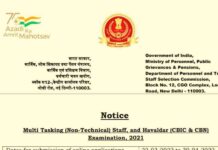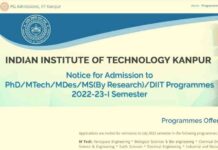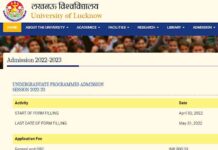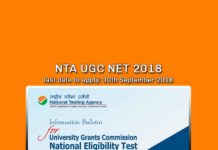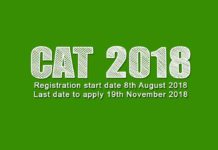Do you want to become an assistant professor in India? This one stop guide will give you complete and relevant details here.
After the 7th pay commission 2016 recommendations, UGC increased the pay scale for Adhoc and Assistant Professor jobs in 2018.
Therefore, an assistant professor in Central or State University earns around Rs. 90,000/- to 1,01,500/- per month.
That is why, career in teaching, particularly at university level, is getting popular due to lucrative salaries, job satisfaction, and authority and respect that comes with it.
So, if you’re planning to pursue a job as an assistant professor, then this one article covers all important details regarding it.
Types of Teaching Jobs at University or College in India
In India, as notified by UGC in 2009, there are three faculty ranks namely:
| Assistant Professor |
| Associate Professor |
| Professor |
| Senior Professor |
| Vice Principal |
| Principal |
All of the above mentioned jobs are permanent jobs offered at both Government and Private Universities and Colleges.
The assistant professor is an entry level job to teach undergraduate students at university level.
Apart from assistant professor job, there contractual openings for teaching at university that are:
- Guest Faculty
- Ad Hoc Lecturer
Both these posts are on contract basis and do not offer perks, incentives and support much like permanent positions.
We have discussed more about this in the later section, scroll to find out.
Minimum Qualification Required to Become a Professor in India
As per the UGC 2009, following are the minimum qualification required to apply for faculty positions:
| Positions | Minimum Qualifications |
| Assistant Professor |
OR
|
| Associate Professor |
|
| Professor |
OR
|
| Senior Professor in Universities |
|
| College Principal |
|
| College Vice Principal |
|
UGC NTA National Eligibility Test for Assistant Professorship
UGC (University Grants Commission) in collaboration with NTA (National Testing Agency) conducts NET JRF test twice a year (June and December month usually).
The following list of frequently asked questions will give you a clear idea about the NET JRF exam.
What is NET JRF?
How many subjects are there in the NET JRF exam?
There are more than 80 subjects in Languages, Humanities, Social Sciences and Management subjects in the NET JRF exam.
What is the Eligibility Criteria for NET JRF exam?
Master’s degree or equivalent with 55% marks (50% marks for reserved category) from recognized University or Institute in India.
What is the NET JRF exam schedule?
NTA on behalf of UGC conducts NET JRF exam twice a year in June and December month.
What is the exam pattern of the NET JRF exam?
There are two papers - General Paper 1 and Subject Paper 2 that are MCQ based with a total duration of 3 hours with no breaks.
What is the age limit for the NET JRF exam?
What is the application process for the NET JRF exam?
NTA (National Testing Agency) usually notify in the month of March or April on its official website for the NET JRF exam registration with the link to online application.
Who is exempted from the NET JRF exam?
Candidates who have qualified SET or SLET are exempted from NET JRF exam, but only eligible to apply in the same state universities/colleges.
What is the cut off for the NET JRF exam?
The rule is to qualify 6% of the candidates appearing in NET JRF exam, therefore cut offs are calculated accordingly.
Salary Breakup for Various Academic Positions in India
| Assistant Professor | Rs. 60,000/- to Rs. 100,000/- per month |
| Associate Professor | Rs. 80,000/- to 180,000/- per month |
| Professor | Rs. 150,000/- to 250,000/- |
| Senior Professor in Universities | Rs.180,000/- to 300,000/- |
| College Principal | Rs.180,000/- to 300,000/- |
| College Vice Principal | Rs. 150,000/- to 250,000/- |
Shortlisting Criteria – Academic Performance Indicator (API)
After fulfilling the eligibility criteria to apply for assistant professor, you can apply for the jobs in any university or college in India.
However, as you apply, you will be shortlisted on the basis of your academic score calculation.
Basically, candidates with higher academic scores will be invited for the interview.
There’s a method to calculate the academic score.
Following table list score for each academic record to calculate API (Academic Performance Indicator) for the post of Assistant Professors in Universities:
| Academic Achievements | Score |
| Graduation | 80% or above marks = 15 score
80% (less) to 60% = 13 score 60% (less) to 55% = 10 score |
| Post Graduation | 80% or above marks = 28 score
80% (less) to 60% = 25 score 60% (less) to 55% = 20 score |
| M.Phil | 60% or above = 07 score
60% (less) to 55% = 05 score |
| Ph.D | 30 score |
| NET-JRF/NET Only/SET/SLET | NET-JRF = 07 score
Only NET/SET/SLET = 05 score |
| Research Publications in Peer Reviewed and UGC listed Journals | Maximum 10 score (2 score each for publications) |
| Teaching and Post Doctoral experience | Maximum 10 score (2 score for each year) |
| MAXIMUM TOTAL SCORE | 100 |
Following table list score for each academic record to calculate API for the post of Assistant Professors in College:
| Academic Achievements | Score |
| Graduation | 80% or above marks = 21 score
80% (less) to 60% = 19 score 60% (less) to 55% = 16 score |
| Post Graduation | 80% or above marks = 33 score
80% (less) to 60% = 30 score 60% (less) to 55% = 25 score |
| M.Phil | 60% or above = 07 score
60% (less) to 55% = 05 score |
| Ph.D | 20 score |
| NET-JRF/NET Only/SET/SLET | NET-JRF = 10 score
Only NET/SET/SLET = 08 score |
| Research Publications in Peer Reviewed and UGC listed Journals | Maximum 06 score (2 score each for publications) |
| Teaching and Post Doctoral experience | Maximum 10 score (2 score for each year) |
| MAXIMUM TOTAL SCORE | 100 |
The above table will give you a clear idea on how to increase your academic score and increase your chances of landing a professor job in India’s leading universities.
How to Apply for an Assistant Professor Job in India?
| Professor Job Openings
From time to time, major universities in India notify and advertise job openings on their official website and major newspapers. You will have to follow such news to stay updated with job openings and apply in time. |
| Application Process
Most universities have online application portals through which candidates are required to apply. |
| Ad hoc Panel List
Central Universities such as Delhi University notify ad hoc panel lists to which candidates are required to get themselves enrolled before candidates can apply for the job postings in various colleges of Delhi University. |
| Selection Committee
As per the UGC 2018 regulation, university/college are required to create a selection committee consisting of academicians, experts, HoDs, representatives of reserved category, and/or Vice Chancellor or its representative. |
| Shortlisting
The administration of the college/university will shortlist the candidates and invite them to appear for the interview. |
| Interview
Candidates will be required to appear before the Selection Committee for an interview. And in the interview candidates’ knowledge about their subjects, teaching methods, research methods, and general awareness will be tested. |
Final Word
We tried our best to cover all possible and relevant information that answers your question – how to become a professor in India?
If you have suggestions or want to ask questions then please feel free to use the comment section.
We would love to answer your questions in detail.

